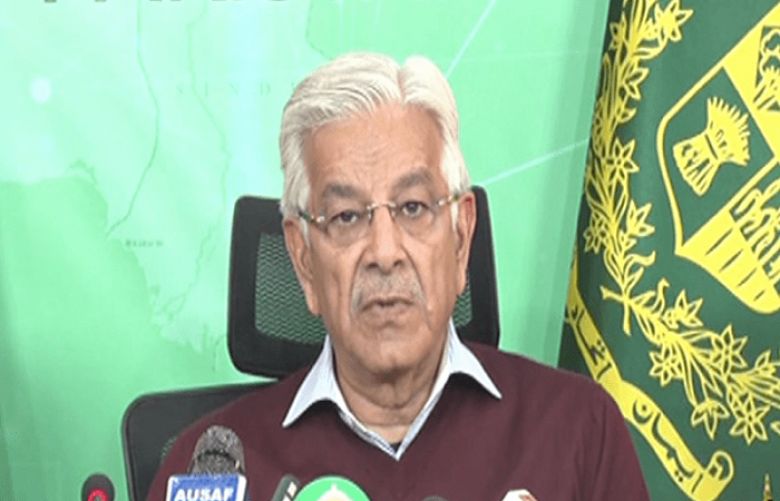Defence Minister Khawaja Asif said on Tuesday that the government would approach the provinces for the implementation of a policy aimed at saving energy.
The announcement comes a day after Prime Minister Shehbaz Sharif directed authorities concerned to take steps to reduce circular debt in the energy sector.
“The distribution companies of Sui gas should improve the system of recovery of bills and no additional burden should be put on gas and electricity consumers,” the prime minister was quoted as saying.
Media reports quoting the power division have said that the circular debt which stood at Rs2.253 trillion by end of September last year had now reached Rs2.437 trillion, showing an increase of Rs185bn.
Briefing the media after a meeting of the federal cabinet, Asif that the PM had held several meetings on the issue and a final decision would be taken by Thursday.
He said that estimates had shown that if 20 per cent of the government workforce worked from home on a rotation basis, Rs56 billion could be saved. “It is mainly about the nation limiting its lifestyle,” he said.
He further said that the timing of wedding halls would be limited to 10pm, while restaurants, hotels and markets would close down by 8pm. He, however, said that there may be some room for the closing time for restaurants to be extended by an hour.
The minister said that by implementing these few steps, the country would be able to save Rs62bn.
Asif said that the government was slowly working on shifting to renewable energy but until that was achieved, such measures were important.
He went on to say that energy-efficient fans and bulbs would soon be introduced in the market, which would further help save Rs38bn. “Similarly, if street lights are used alternatively, we would be able to save Rs4bn.”
The minister also revealed that the government was in talks with motorcycle companies for electric bikes. “The motorcycles that run on petrol will slowly be phased out.
“We have begun imports for e-bikes and have started negotiations with motorcycle companies for the modification of existing motorcycles […] this will save us around Rs86bn,” he added.
If all these measures were translated, Asif continued, “you will see that a lot of money can be saved”.
He added that the Ministry of Information would be running a media campaign to spread awareness regarding these new measures among the public.
Talking about water conservation, the minister said that the government had devised ways through which rain water could be harvested and used for daily household consumption.
“In the next few days, we will be approaching all the provinces with this national project and then on Thursday the final approval of the conservation policy will be given,” Asif stated.
He then called on the nation to “normalise” its behavorial patterns as the country was in a “grave economic crisis”, adding that “we can’t afford the culture of wastage anymore”.
“I also believe that politicians should be the first ones to adopt these changes and become role models for the public,” the minister added.
Meanwhile, Adviser to Prime Minister on Kashmir and Gilgit-Baltistan Qamar Zaman Kaira said that Pakistan was surrounded by an economic crisis at present, but at the same time assured that the country would not default.
“The government is taking all the measures it should, but we also need a response from the public,” he stressed. “If we say that we won’t change our habits […] won’t give any sacrifices and expect the government to do everything […] this is not possible.”
Kaira highlighted that the biggest problem Pakistan was facing today was the increasing import bill and warned that if these measures were not taken “we won’t be able to pay the bill anymore”.
“Hence, it is extremely important for the people to cooperate with the government. We also expect the provinces to look at these measures for the prosperity of Pakistan,” he added.







